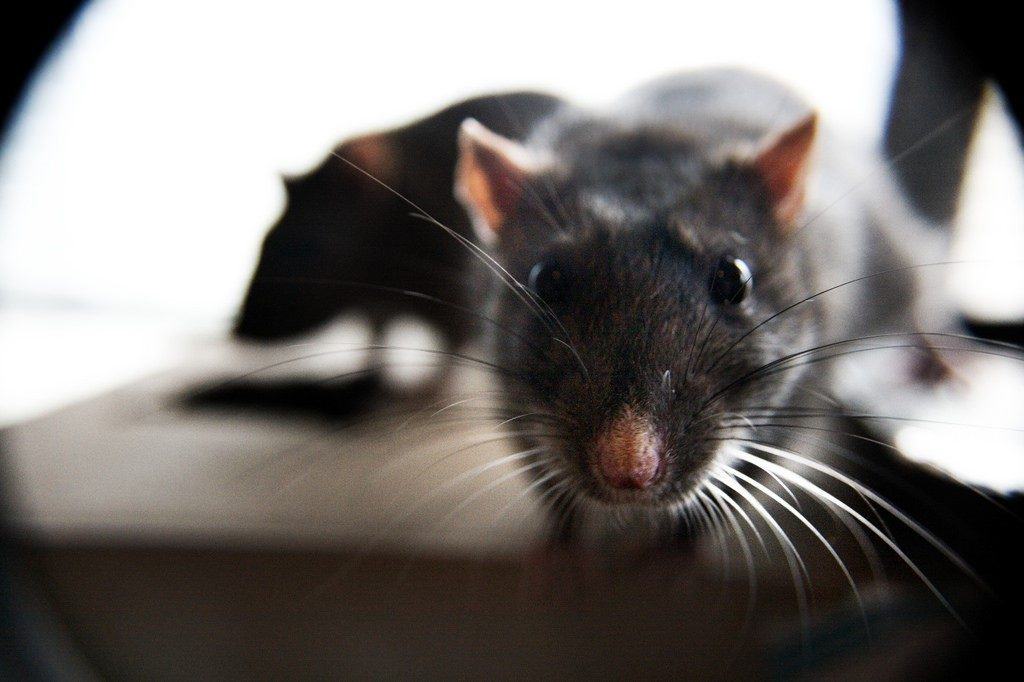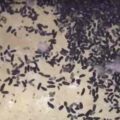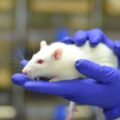Table of Contents
Although rats and mice have many similarities they also have many differences. One of the more significant differences is in the predatory nature of the two species and how it impacts what they eat.
So how about it…if you stuck a mouse and a rat together what would happen? Do rats eat mice?
All rats will eat mice and some of them will actively hunt and kill mice, a behavior that is called muricide. Mice have evolved to avoid rats whenever possible and become quite stressed when they detect the presence of a rat. The muricidal behavior of rats is a valuable tool in the medical research of brain functions and drug screening.

How and Why Do Rats Kill Mice?
First, let’s address the question of whether or not rats kill mice at all. The answer is yes, they do.
In fact, this behavior has a scientific term all its own: Muricide. This kind of predation is actually quite common. Two independent studies spaced nearly 15 years apart (one in 1956 and another in 1970) proved this out, revealing that 67-77% of wild rats actively hunt and kill mice. This shouldn’t come as a surprise considering how resourceful and adept rats are at mastering their environment.
The next question is if rats will consume the mice that they kill. This also turns out to be quite common—rats will often eat the mice they kill starting with the brain and liver, which happen to be the most nutrient-rich organs found in mice. If nothing else, rats are exceptionally efficient hunters!
Not only do rats kill mice, but isolated populations of rats may kill mice at varying rates depending on a host of different factors, both neurochemical and environmental.
Why Does This Happen?
The factors that most contribute to mouse-killing behavior in rats are threefold: neurotransmitter system influence, neural system influence, and hormonal influences. How a rat’s neurons are firing, when, and in what sequence largely determine whether or not a rat will kill a mouse.
However, there are other learned traits that rats can acquire throughout their lifetime, traits that will predispose them to kill mice if given the opportunity. These learned traits can come from their environmental conditions (growing up with mice around), rearing by the mother (seeing the mother hunt and eat mice), and even their diet (feeding on dead mice the rat discovers).
The last factor that contributes to whether or not a rat will kill a mouse has to do with how hungry the rat is. Hungrier rats tend to grow more and more aggressive in their hunting, targeting mice more as their hunger grows. This is an adaptive trait that has helped to contribute to the rat’s long-standing reputation for being incredibly resourceful.
Norway Rats Are The Big Killers
It’s important to distinguish the difference between an actively hunting rat and a passive, more opportunistic rat that might be more interested in consuming a dead mouse than hunting one down. Norway Rats (also known as sewer rats) are known for their hunting prowess, whereas Black Rats (also called ‘roof rats’ or ‘palm rats’) do not hunt. In the United States, these two rat species make up the majority of the rat population. The third rat species in the US, the Woodrat, has not actively been studied for muricidal behavior.
The initial study of muricide we mentioned earlier (Karli, P. 1956. The Norway Rat’s Killing Response to the White Mouse. Behaviour. 19: 81-103.) was specific for Norway Rats. Black rats would be much more prone to eating a dead mouse that they discovered.
So, as it turns out, the hardy and conniving Black Rat is not especially dangerous to other small animals. They’re much more interested in foraging for food that doesn’t require killing in order to consume.
Use in Medical Research
One of the great things about our long history of living with rats is that we have accumulated a trove of scientific evidence gathered from thousands of rat-based studies. In one such study, it was found that Norway Rats will kill fewer mice when the rats are given antidepressants or stimulants like d-amphetamine.
Another related study showed that the amygdala—a part of the brain crucial for decision-making—has a lot to do with whether or not a Norway Rat will kill a mouse. When the amygdala is affected by certain psychotropic drugs, muricidal behavior is inhibited.
Studies like these are performed to help researchers better understand brain chemistry so that more efficient and effective drugs for humans can be developed.
Beware the Stoned Rats
Whatever your opinions are on the use of marijuana or its active component THC (Tetrahydrocannabinol), one thing is for sure: a rat on pot is a vicious mouse killer.
It’s true. A scientific study that sought to understand the behavior of rats under the influence of THC showed that stoned rats are much, much more aggressive mouse killers compared to their sober counterparts.
For rats, this gives a new meaning to having the ‘munchies’. So, if you have a mouse problem and you have access to some rats, just hand the rats a few edibles and watch your mouse problem vanish!
Just be sure not to let the rats operate any heavy machinery after they’ve devoured all the mice.
Wrapping It Up!
In this article, we’ve definitively answered the question, “Do rats eat mice?” with a resounding “Yes.” Rats can and will eat mice, but only the rat species known for hunting will engage in this behavior. In North America, the most common hunting rat is the Norway Rat. The other most populous rat, the Black Rat, doesn’t hunt at all and is therefore not a threat to mice.
We’ve also discussed how various factors play into a Norway Rats decision to hunt and consume mice. We’ve showed that some central nervous system-stimulating drugs like d-amphetamine will actually reduce a rats penchant for killing mice, whereas marijuana (and THC by extension) will prompt rats to kill mice even more.
When it comes to tackling the challenge of rodent control, it’s necessary to understand the behavior of rats, mice, and the interactions among them. Hopefully this article has given you some food for thought (which is great if you happen to have the mental munchies!).





